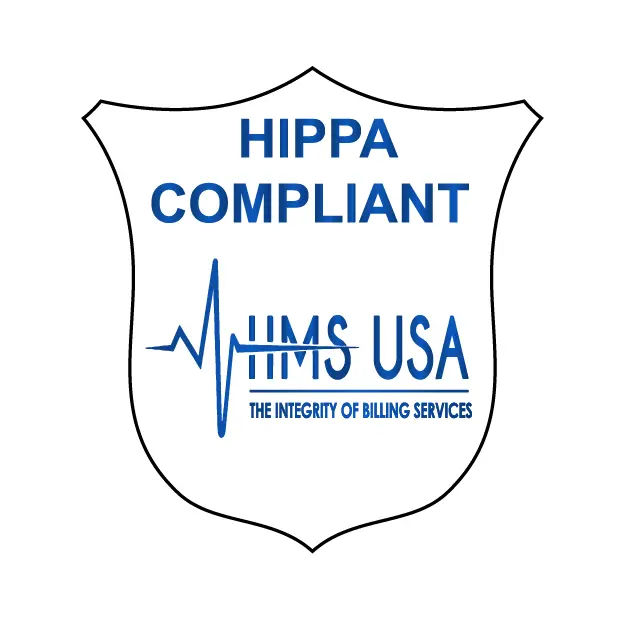Time is better spent in treatment sessions than between labs and X-rays. The services counsellors, therapists, and mental health professionals provide differ from their medical counterparts. Substantial numbers of people struggle with mental illness, thus making it one of the major causes of suffering worldwide. How Mental Health Billing Different From Medical Billing?
Although there is a wide range of mental disorders, there are effective means of prevention and treatment that can significantly enhance the lives of those who suffer from them. Many people in the mental health care industry get started to provide their communities with this life-changing service.
Mental health professionals must often process billings to save money when running a business. Without assistance from outside sources, this is a complex undertaking due to issues including insurance companies’ shifting policies and billing practices. But, what is the difference between mental health billing and medical billing?
Billing for mental health services involves filing claims for addiction treatment and other behavioral health issues. Mental health billing differs significantly from medical billing because it requires a more in depth familiarity with mental health diagnosis, treatment plans, and coding.
Specialists in mental health billing need to be knowledgeable about the various treatment programs and levels of care available for mental illness, as well as the most up-to-date codes and modifiers required by each payer.

Reimbursement for medical care is achieved via what is known as “medical billing,” or the submission of claims to insurance providers. Billing and coding for medical services, including office visits, operations, and diagnostic imaging, are all part of medical billing.
Most medical billing is simple and gets completed by professionals with a vast understanding of medical language and code.
Insurance companies often place more regulations on claims related to behavioral health. Therefore this sets mental health billing apart from medical billing. Treatment regimens in the field of behavioral health are often more complex. Charging for a therapy session that lasts for 45 minutes will be more difficult than paying for an annual wellness check or a lab test.
The following are some of the most notable differences between mental health services and medical services.
Most medical services have corresponding current procedural terminology (CPT) billing codes. Blood draws (CPT code 36415) and well-woman exams (CPT code 99385) are two examples of services that would be billed under the CPT system for new patients aged 18-39.
However, the length of a patient’s mental health visit can change how much they are billed. After seeing a patient, you should charge them using the billing code that most closely reflects the time you spent with them.
Most health insurance plans restrict the number of counselling sessions or other types of mental health care that may be provided in a specific time frame. Insurers may, for instance, limit patients to one visit per week or day.
Knowing the coverage restrictions established by your insurance company is crucial. If you don t, you risk having your claims for mental health treatment you offer denied or having trouble being paid for your services.
Insurers occasionally require prior permission (pre authorization) before covering mental health services. This might change from service to service and across insurance providers.
Pre-approval may not be necessary for a first office visit but for psychological testing. After a specific number of doctor’s appointments, your insurance company could demand pre-approval for any further treatment.
As mental health services expand, so do the laws and regulations governing how they are billed. For instance, the COVID-19 pandemic saw the addition of several telehealth codes. The Medicare and Medicaid Services (CMS) pricing schedules for telehealth services are regularly revised.
Keeping up with these shifts may seem impossible if you manage a little practice with few resources. However, submitting incorrect claims can hinder your revenue cycle and delay reimbursement if you are unaware of these changes.
There is no universally accepted method of diagnosing or treating mental health conditions; thus, care programs are tailored to each patient. The billing process may become more involved and confusing due to these individualized care plans.
Telehealth mental health services have increased since the COVID-19 epidemic. You may also use the CPT codes to charge for in-person visits may also be used for telehealth services in certain circumstances. However, you must add a modifier to the program code.
Modifier 95:
Suppose the communication is conducted in real-time (i.e., not recorded) but through a telecommunications system (such as a video chat). In that case, you can use this modifier in the code.
Modifier 02:
This identifier indicates that a telecommunications system is the interaction’s point of service (POS). In contrast, if you were to visit an office in person, you would need the POS code 11.
The Healthcare Common Procedural Coding System (HCPCS) also includes a distinct set of billing codes for tele behavioral health services. In some instances, the letter G is used instead of a number to denote the beginning of the code.
For Instance:
G2010: Remote assessment of a previously recorded video from an established patient.
G2012: Remote check-ins or quick visits prompted by patients.
Alternative HCPCS telehealth codes could be:
99421: Online assessment and treatment of chronic conditions; five to ten minutes daily over seven days.
99422: Established patient online assessment and management; 11 20 minutes total over seven days.
99423: Online assessment and care of an existing patient; 21+ total minutes over seven days.
Mental health treatments are notoriously tricky to bill to insurance companies. If your healthcare practice doesn t have a reliable claims service, you may be at a disadvantage to competitors who do.
This may affect anything from the types of treatments provided to the frequency of pre authorizations needed and the identity of the person responsible for paperwork.
When it comes to mental health, practitioners frequently get less reimbursement. Many therapists are either outside the insurance network or do not accept insurance because of the bureaucracy involved in billing.
This makes it more difficult for mental health experts to be paid for their services. They need to ensure that they can maintain high levels of revenue while providing excellent service to every one of their patients.
Also, many providers may feel overwhelmed because of the difficulty in invoicing for mental health services. Claims are processed slowly and frustratingly due to the ever-changing complexity of the coding standards. Limits on how many procedures may be performed each day and, in certain situations, each week are also established by insurance companies.

One cannot dispute the difficulty of invoicing for mental health services. Because of the often modest size of mental health offices, dedicated billing staff is not always available to assist with patient claims.
But that doesn’t mean your practice should go underpaid or unpaid. Following these tips can help ensure you optimize billing for mental health services and maximize reimbursements.
Verifying benefits is essential to the revenue cycle management (RCM) process. You could lose the claim if you don’t understand the patient’s coverage before their appointment.
An excellent place to begin is with a fast and trustworthy eligibility checker. It is particularly beneficial (especially for smaller practices) if your eligibility program can automate parts of the procedures for you. The gadget should verify weekly patient benefits and alert you to any problems or expiring plans.
Having thorough patient records will aid in obtaining pre-approvals and appealing denied claims. In addition to correct demographic data, you should have complete information on the patient’s diagnosis, drugs, and therapies.
A record of every action taken during the initial authorization phase is also helpful when necessary.
Since there are no universal requirements for filing claims, you’ll need to tailor your approach to each payer. You still need to learn the ins and outs of each payer, even if you’re only dealing with one or two.
You should submit your claims immediately. Given the length and complexity of the procedure, getting started as soon as possible is essential to ensuring timely payment.
How Is Mental Health Billing Different From Medical Billing? In conclusion, billing for mental health services requires expert knowledge of diagnosis, treatments, and codes.
When comparing mental health billing to other types of medical billing, it all comes down to the kind of services provided. Simple medical services like diagnostic testing are billed as part of the healthcare system.
Psychotherapy, medical management, psychological testing, and inpatient and outpatient rehabilitation are all examples of treatments related to mental and behavioral health.
The treatment of mental problems is represented by CPT Codes 90846 and 90847, referred to as family psychotherapy services.
The medical industry has two distinct billing practices: institutional and professional.
Codes from the Current Procedural Terminology (CPT) manual provide medical practitioners with a standard language for reporting and classifying medical services and procedures.
The state of one's behavioral health is more directly related to an individual's choices. It depends on how they react under different conditions. People might respond exceptionally differently to the same emotional triggers. Contrarily, mental well-being is primarily concerned with an individual's internal experiences.
At HMS USA, we believe in giving healthcare providers everything they need to make the complicated business of medicine and billing a breeze. Our complete suite of solutions offers tailored data analysis alongside efficient claim handling, customizable aging reports, and performance-driven consulting services – all designed to optimize your revenue cycle.
© 2023 Copyright HMS USA Inc. All Rights Reserved
At HMS USA, we believe in giving healthcare providers everything they need to make the complicated business of medicine and billing a breeze. Our complete suite of solutions offers tailored data analysis alongside efficient claim handling, customizable aging reports, and performance-driven consulting services – all designed to optimize your revenue cycle.
© 2023 HMS USA Inc. All Rights Reserved

